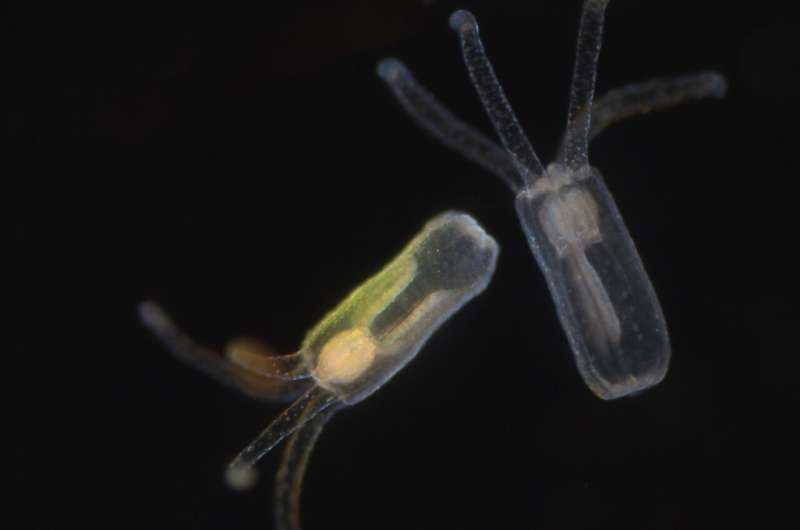Coral reefs, the bustling underwater metropolises that harbor unparalleled biodiversity, are facing unprecedented threats due to climate change. Rising temperatures and ocean acidification are placing these delicate ecosystems on the brink of collapse, endangering not only marine life but also the livelihoods of millions of people who depend on reefs for sustenance and income.
In the race against time to save coral reefs, scientists are turning to an unexpected ally: sea anemones. These unassuming creatures, often overlooked in the grandeur of coral reefs, possess a remarkable ability that could hold the key to their survival. By unlocking the secrets of sea anemones, researchers are pioneering groundbreaking techniques to bolster coral resilience and combat the devastating effects of environmental degradation.
At the forefront of this innovative research is a team of scientists from the University of Florida, whose recent study published in the journal iScience has garnered widespread attention. Led by Dr. Mark Martindale, director of the University’s Whitney Laboratory for Marine Bioscience, the researchers have successfully induced sea anemones to mimic the coral skeleton creation process—a pivotal step in coral reef formation.
The significance of this achievement cannot be overstated. Traditionally, studying coral polyps in the lab has been challenging due to their fragile nature. However, sea anemones, such as Nematostella vectensis, offer a resilient and easily manipulable alternative. By injecting sea anemone embryos with a specific gene from stony corals, the researchers were able to trigger the production of skeleton-forming proteins, effectively transforming these soft-bodied creatures into living models for coral research.
Brent Foster, a researcher in the Martindale lab and lead author of the study, expressed optimism about the implications of their findings. “Going forward, scientists can alter this gene and the others involved in coral skeleton production, tweaking their way toward creating climate-resilient coral polyps,” he explained.
The potential of sea anemones extends far beyond coral research. By studying biomineralization—the process by which living organisms create hard structures—scientists can glean insights applicable to a wide range of fields, from dentistry to materials science.
As the global community grapples with the urgent need to protect coral reefs, the role of sea anemones as guardians of these invaluable ecosystems becomes increasingly clear. By harnessing the biological potential of these humble creatures, scientists are paving the way for innovative solutions to preserve coral reefs for future generations.
The journey towards coral reef conservation is far from over. Continued research, collaboration, and proactive conservation efforts are essential to address the multifaceted challenges facing coral ecosystems. With dedication and ingenuity, we can unlock the secrets of nature and ensure that coral reefs continue to thrive as vibrant hubs of marine life for years to come.
